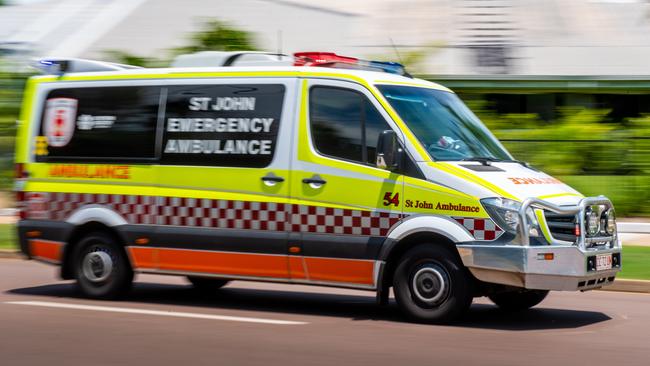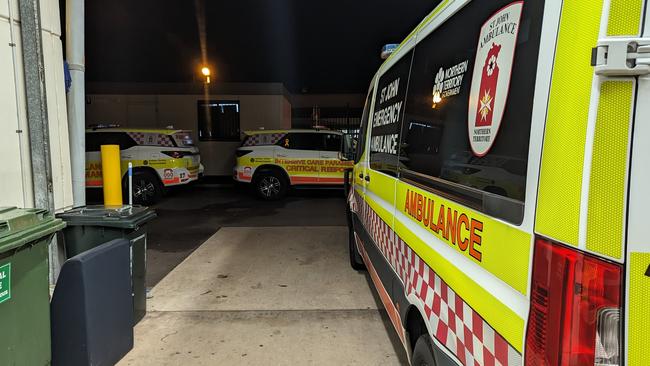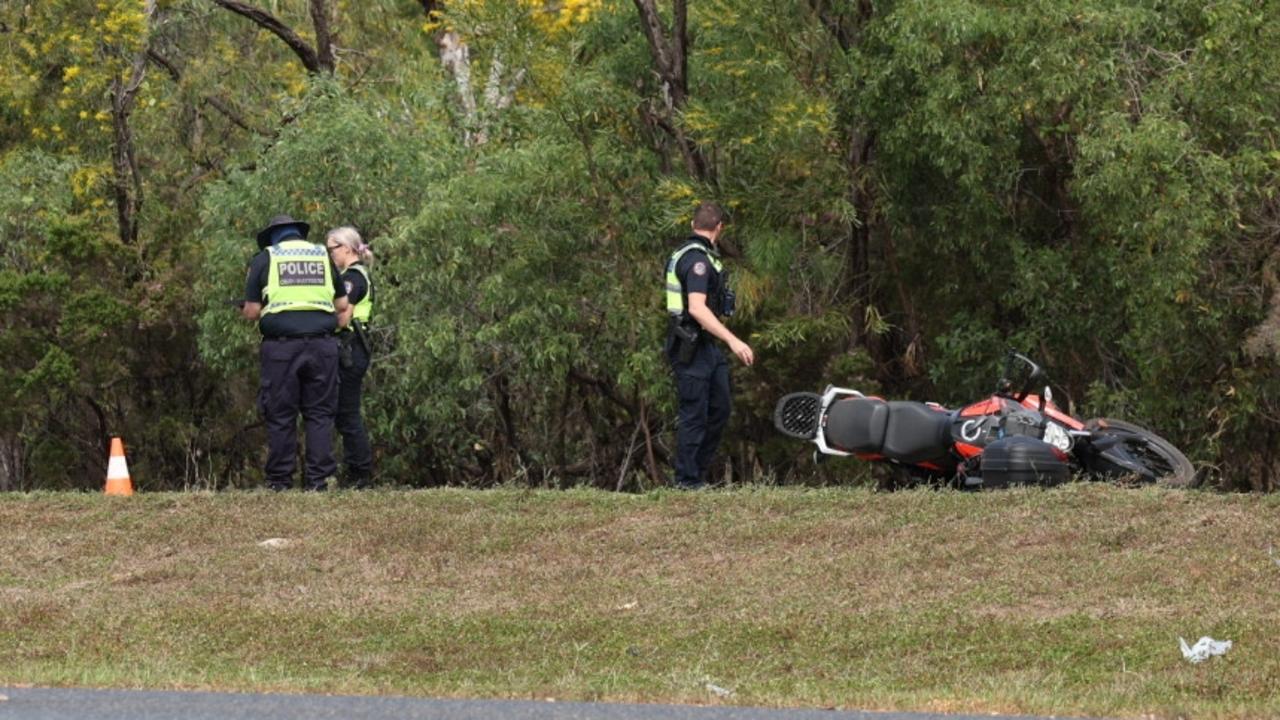Lack of clinical governance: St John NT suspends use of ‘High Acuity, Low Occurrence’ procedures
‘You don’t let people fly a plane without the right training’: The Territory’s ambulance service has suspended the use of two medical procedures due a lack of clinical oversight.

News
Don't miss out on the headlines from News. Followed categories will be added to My News.
Paramedics have been barred from performing two ‘life saving’ but high risk procedures in the Territory due to a lack of oversight in the critical front line health service.
The NT News has obtained a letter from the St John NT Director of Ambulance Services to all staff confirming the immediate suspension of two “High Acuity, Low Occurrence” procedures.
On Friday, Andrew Thomas said paramedics would no longer be able to perform a finger thoracostomy or pre-hospital emergency anaesthesia, following concerns from the Road Ambulance Services Clinical Governance Committee.
“This suspension will remain in place until specific governance and oversight requirements-most notably the appointment of an Ambulance Service Medical Officer-are fully addressed,” Mr Thomas said.
Paramedics told the NT News that the health service had gone two years without a chief medical officer, leaving the Territory as the only place in Australia without this role.
The removal of the previous medical officer, Tom Quigley, was criticised in the leaked independent Clinical Governance Review of St John NT.

The 2024 report by Craig Ellis said this decision “exposed the organisation, staff and patients to an unacceptably high level of risk” and flagged the lack of oversight on high risk surgical procedures including finger thoracostomy as well as rapid sequence intubation, surgical airways incision.
Medical professionals told the NT News that a finger thoracostomy is occasionally used at the scene of serious car crashes to rapidly decompress pressure by cutting into the chest and inserting a finger between the lung and chest wall.
They said the Pre-Hospital Emergency Anaesthesia was used to rapidly sedate a patient and secure their airway, but can cause a patient to go into cardiac arrest.
A paramedic, who wished to remain anonymous, said they had heard of cases where HALO skills were used “inappropriately”, resulting in “bad outcomes” for patients.

Australian Medical Association NT president John Zorbas said while these could be “life saving procedures” without proper training and oversight they were no longer safe.
“These are procedures that can kill people and so they need to have governance and training around them,” Dr Zorbas said.
“You don’t let people fly a plane without the right training.
“It wouldn’t make sense to let people cut into someone’s chest on the side of the road unless they know what they’re doing.”
Dr Zorbas said these issues had been repeatedly raised by members, saying the temporary suspension would “make things safer”.
“We don’t want to take these procedures off the table permanently,” he said.
“What we want is our paramedics to have the right training and the right support.”

The paramedic said workers agreed that the HALO procedures should be suspended , however were “disappointed” that this was due to a lack of governance.
“If they didn’t get rid of the doctor, if they continued with the regime that the doctor had in place, this skill could have remained and could be delivered safely,” they said.
“What we want is a medical director back and we have good governance, we have a good quality control team who work over there.
“We need that doctor reviewing the cases we do.”
In the letter to St John staff, Mr Thomas said ambulance service and NT Health were in the “final stages” of confirming a permanent dedicated Medical Director to “provide clinical leadership and ensure the safe reintroduction of these procedures within a strengthened governance framework”.
Mr Thomas said the service was committed to implementing the recommendations from the Governance Committee “swiftly”.
However the paramedic said many staff felt this was the last straw following years of “significant culture issues”.
They spoke of an increasingly “demoralised” workforce where paramedics did not feel supported, with some making plans to move interstate.
St John Ambulance NT, NT Health and the Health Minister Steve Edgington were approached for comment, however all said a response would be provided on Tuesday.
More Coverage
Originally published as Lack of clinical governance: St John NT suspends use of ‘High Acuity, Low Occurrence’ procedures




